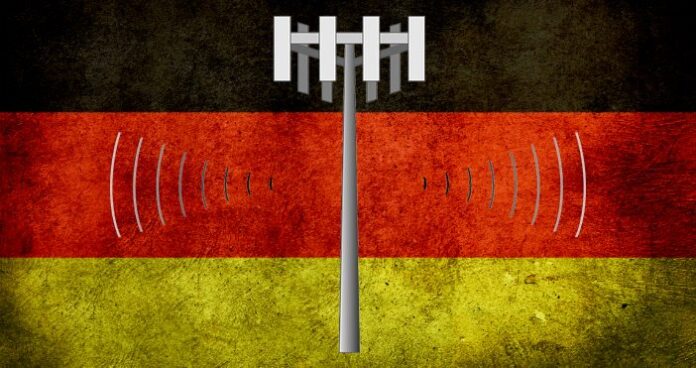Deutsche Telekom and Telefónica also in the mix for 700 MHz spectrum
After 181 rounds of bidding spread over 16 days, Vodafone, Deutsche Telekom and Telefónica emerged as the high bidders vying for access to 700 MHz spectrum covering Germany.
According to the numbers, Vodafone was the high bidder at $2.38 billion, with Deutsche Telekom in second with $2.04 billion and Telefónica in third with $1.36 billion in total bids. The new spectrum allocations are meant for expanded LTE deployments.
Total bids into the German government authorities amounted to $5.75 billion. Back in 2000, a spectrum auction geared toward 3G network licenses raised $57.62 billion.
Auction proceeds are intended to help deploy faster fixed-line broadband networks as part of the large German Internet upgrade strategy.
Finnish analyst Antonios Drossos told Reuters that the total bid value “is a small fraction of the valuation of this spectrum mixed based on the U.S. auction outcome normalized for [the] German population.”
The most recent Federal Communications Commission-run spectrum auction of licenses in the 1.7/2.1 GHz band racked up $44.9 billion in bids, with the 2008 auction of 700 MHz licenses generated just over $19 billion in total bids.
Germany’s Federal Network Agency, which regulates the telecommunications, utilities, postal and railway industries, announced earlier this year that it would conduct a spectrum auction in the 700 MHz range. The news came on the heels of the FCC closing the book on the record-breaking Auction 97 of 1.7/2.1 GHz spectrum bands.
The German agency published a notice giving firms interested in taking part in the spectrum auction until March 6 to submit applications. An announcement from the regulatory agency explains that the auction is based on the need to ensure that at least 97% of households nationwide have broadband coverage. Germany’s broadband requirements are fixed to download speeds of at least 50 megabits per second.
Federal Network Agency President Jochen Homann said the spectrum auction could help improve rural broadband availability. Translated from German, Homann said, “The early allocation of these frequencies will noticeably improve the rural broadband coverage through improved competitive offers among providers.”

